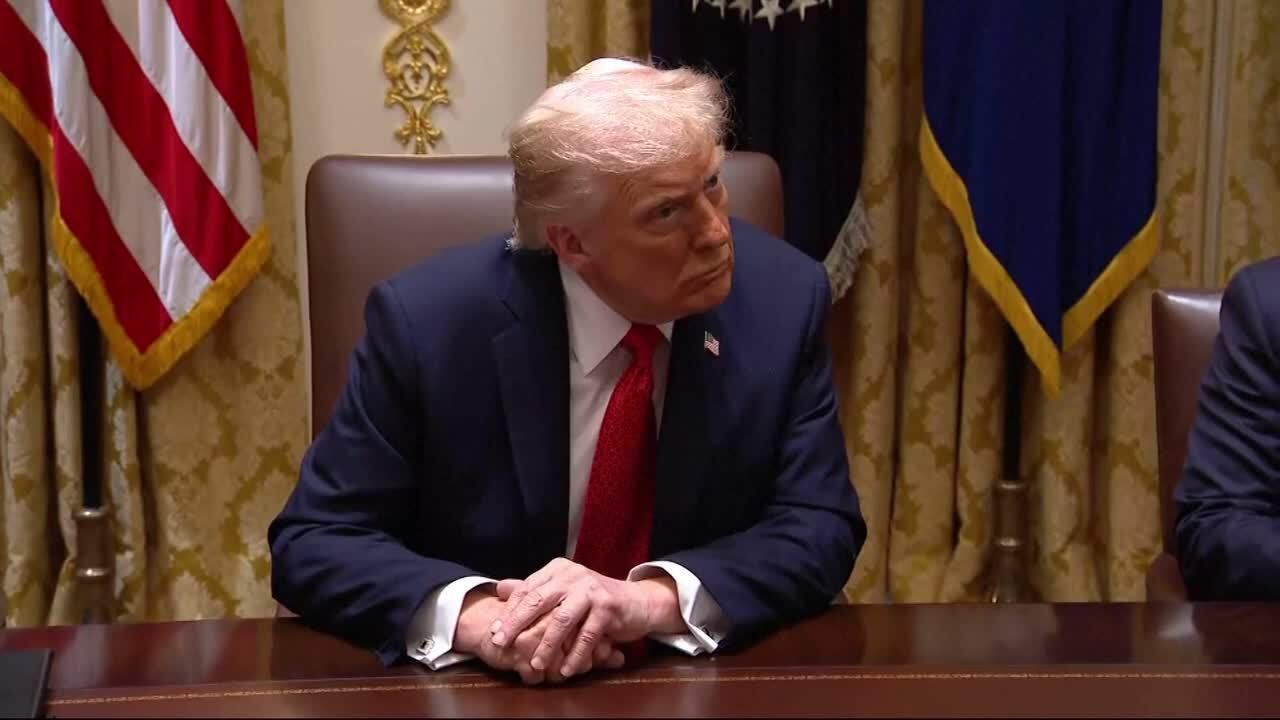We may not have been ready for a global pandemic, and you might rightfully be worried about the threats posed by unsecured nuclear weapons or hacker attacks on the global information infrastructure.
There is some good news, though. You can probably cross "killer asteroids" off your fear list.
At least that's the premise of "Asteroid Hunters," a new IMAX film that chronicles the research and planning done by the world's scientists to reduce or eliminate the threat posed by flaming rocks from outer space.
The film premiered this week at the Kennedy Space Center's IMAX Theater and will roll out across the country as IMAX theaters reopen. You can find out which theaters are showing "Asteroid Hunters" at the IMAX website.
The good news is that, unlike "Tenet," IMAX films stay in rotation for years, so you'll most definitely have a chance to see it as things return to something like normal. And early glimpses at the movie make it look like it's worth the wait.
"Asteroid Hunters" was conceived by IMAX veteran Phil Groves, who had some ideas about how to make a more exciting kind of documentary film. He spoke to us from Florida just before the film's premiere and shared four things that make this movie special.

1. There are parts of "Asteroid Hunters" that seem more like a Hollywood action movie.
Groves says that he recruited director W.D. Hogan because he wanted to make this film as visceral as possible, adding, "It's probably the closest thing to a disaster movie that an IMAX documentary could be. But the mission of this movie is to let people know that this is the potential disaster that can be actually the least scary. "

2. Asteroid strikes may be the most preventable natural disasters.
"You can't cork a volcano. You can't cast a net over a hurricane. You can't glue a fault line to stop earthquakes. But we can actually keep an asteroid strike from happening," Groves says. "We have the science that backs that up. Our visual effects show what an asteroid impact would look like.”
"What we're portraying in the film is exactly what scientists around the world are imagining, and what they are preparing to stop. They know that it's not a question of whether an asteroid will hit Earth again, but when," he added. "We don't know if it's tomorrow or 100 years from now. What they're doing is like that fire extinguisher that you keep at your house, or that seat belt that you wear when you get into the car. It's the ounce of prevention that's worth a pound of cure.
We're better prepared for an asteroid threat than we were for the COVID-19 pandemic.”

3. Governments of the world are preparing to stop an asteroid disaster.
"The good news is that governments are dedicating time and resources to this," Groves says. "The United States has increased the amount of money in the last few years that it's putting towards planetary defense. NASA actually has an agency called the Planetary Defense Coordination Office at NASA headquarters in Washington, D,C. They're led by the world's only planetary defense officer, Lindley Johnson.
"They're putting together a plan for a space telescope, which will improve our ability to find asteroids. You can't do anything about a problem you don't know about. We've only found a fraction of the Near Earth asteroids that are out there right now, and we need to find them all," he added. "Once we find one that is years away from potentially hitting Earth, we can actually keep that from happening. We can actually prevent trouble by nudging an asteroid so that it misses Earth. The movie gets into how we do the nudging and shows that off-the-shelf technology can do the trick.
4. The IMAX business model Is a luxury in troubled times.
"Asteroid Hunters" has got big event movie aspects to it," Groves says. "You'll see an asteroid impact that has never been portrayed in film anywhere, and it's scientifically accurate. The movie will play IMAX multiplex theaters and learning centers around the world over the course of time. But the good news about this movie and the IMAX network of theaters is that the ones in science centers are almost worlds unto themselves. These theaters are used to play movies like asteroid hunters for months, if not years. Those that want to rush out to the theater can, and it'll be around for months for everyone else."
Keep Up With the Best in Military Entertainment
Whether you're looking for news and entertainment, thinking of joining the military or keeping up with military life and benefits, Military.com has you covered. Subscribe to the Military.com newsletter to have military news, updates and resources delivered straight to your inbox.

















